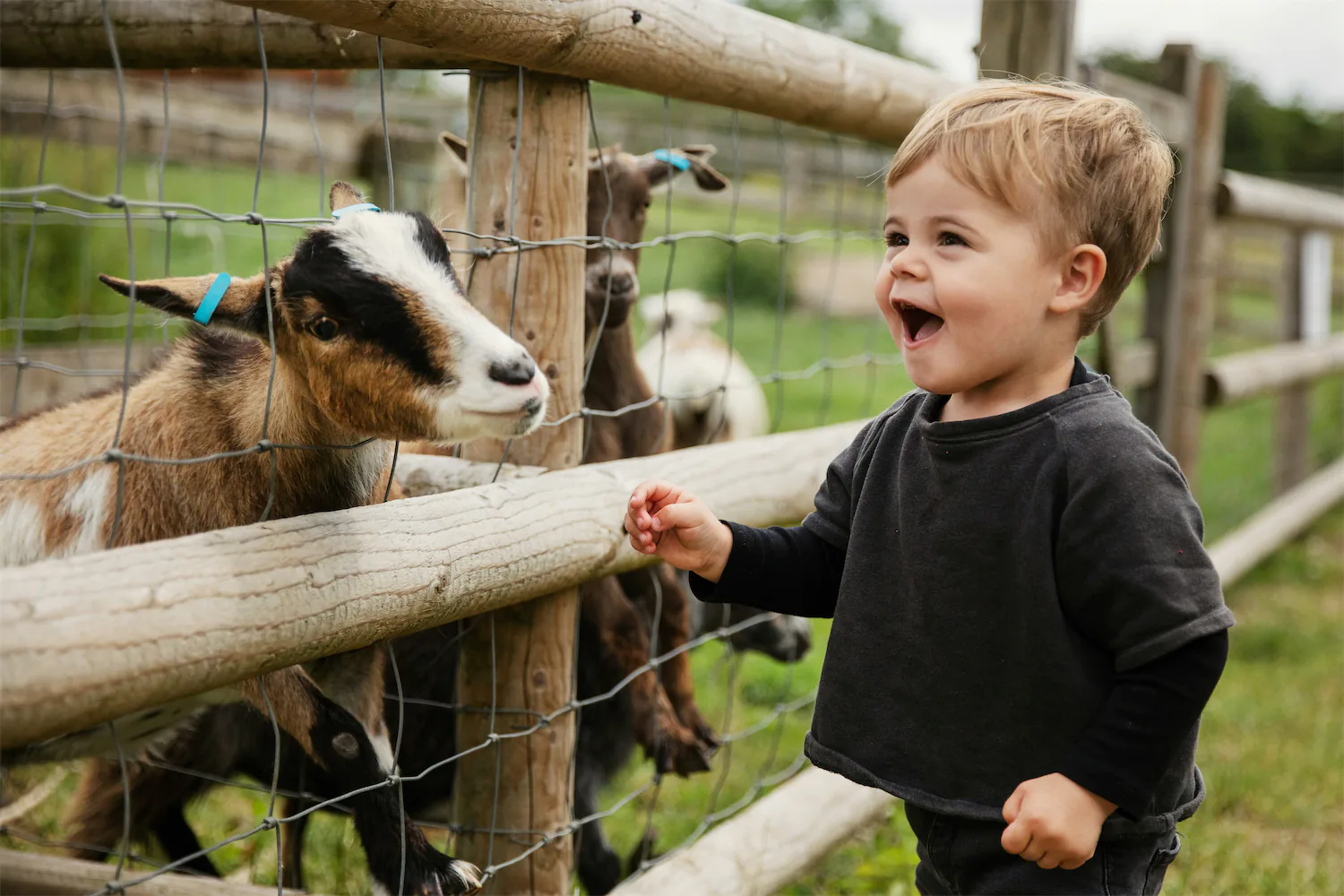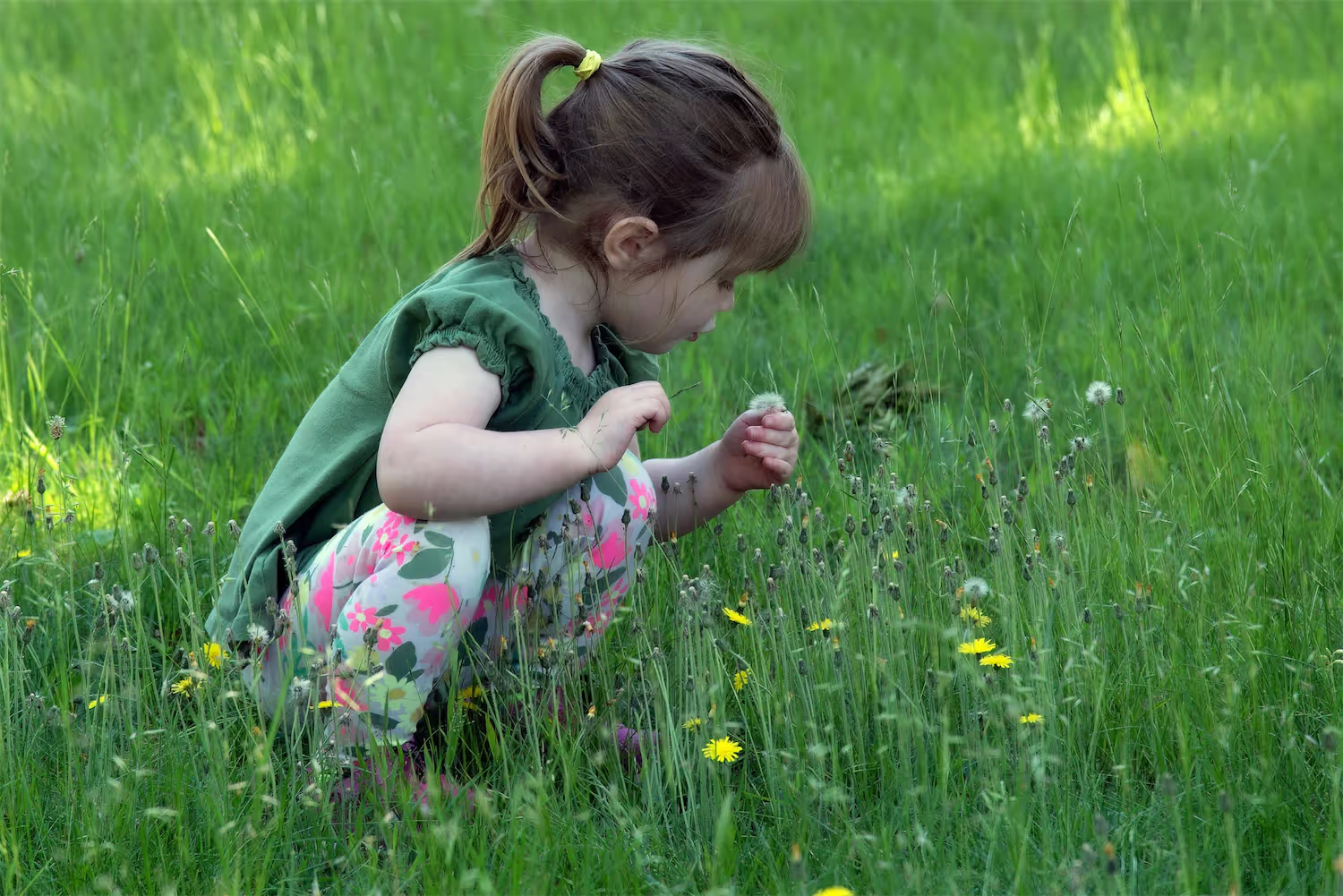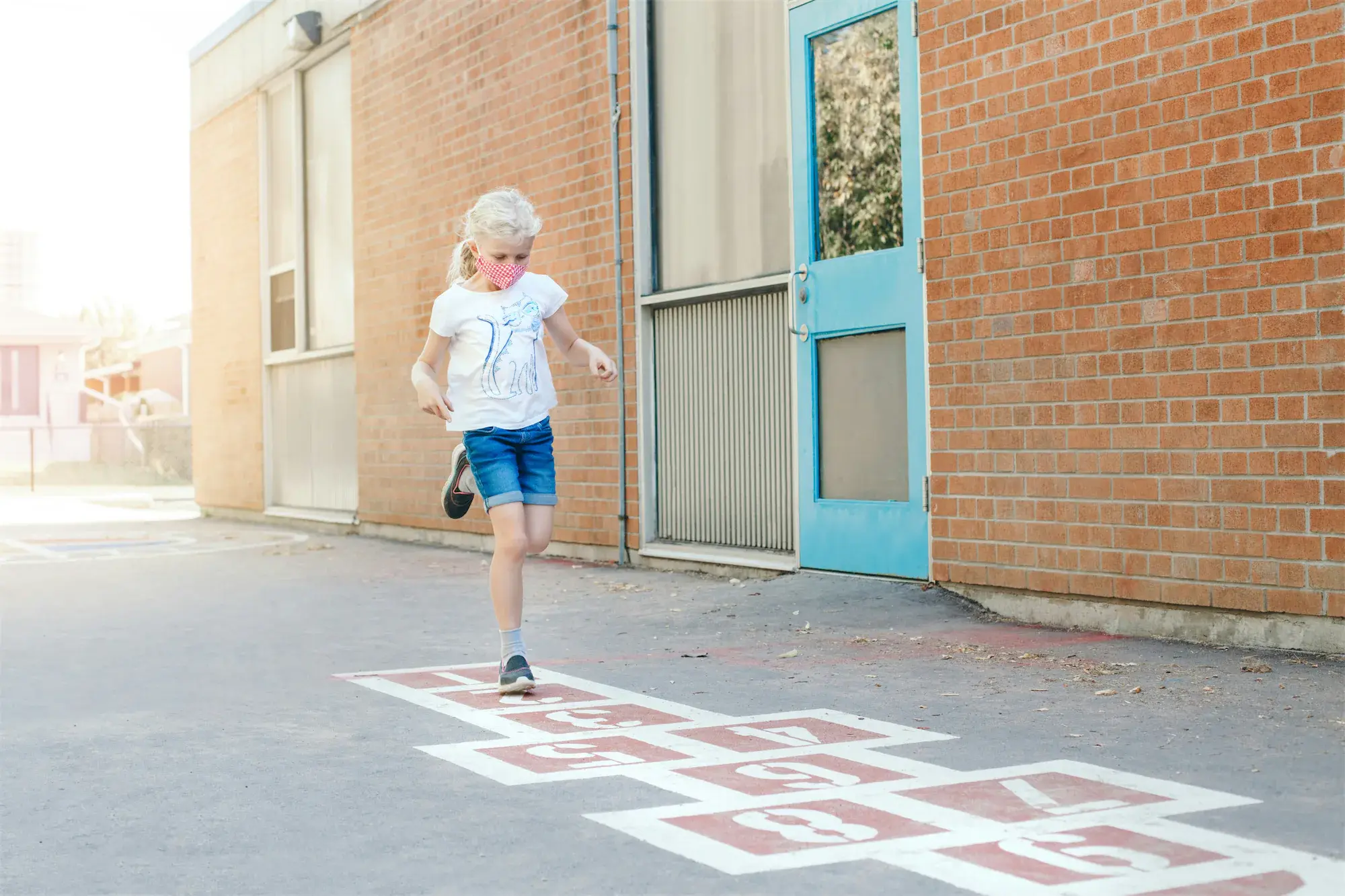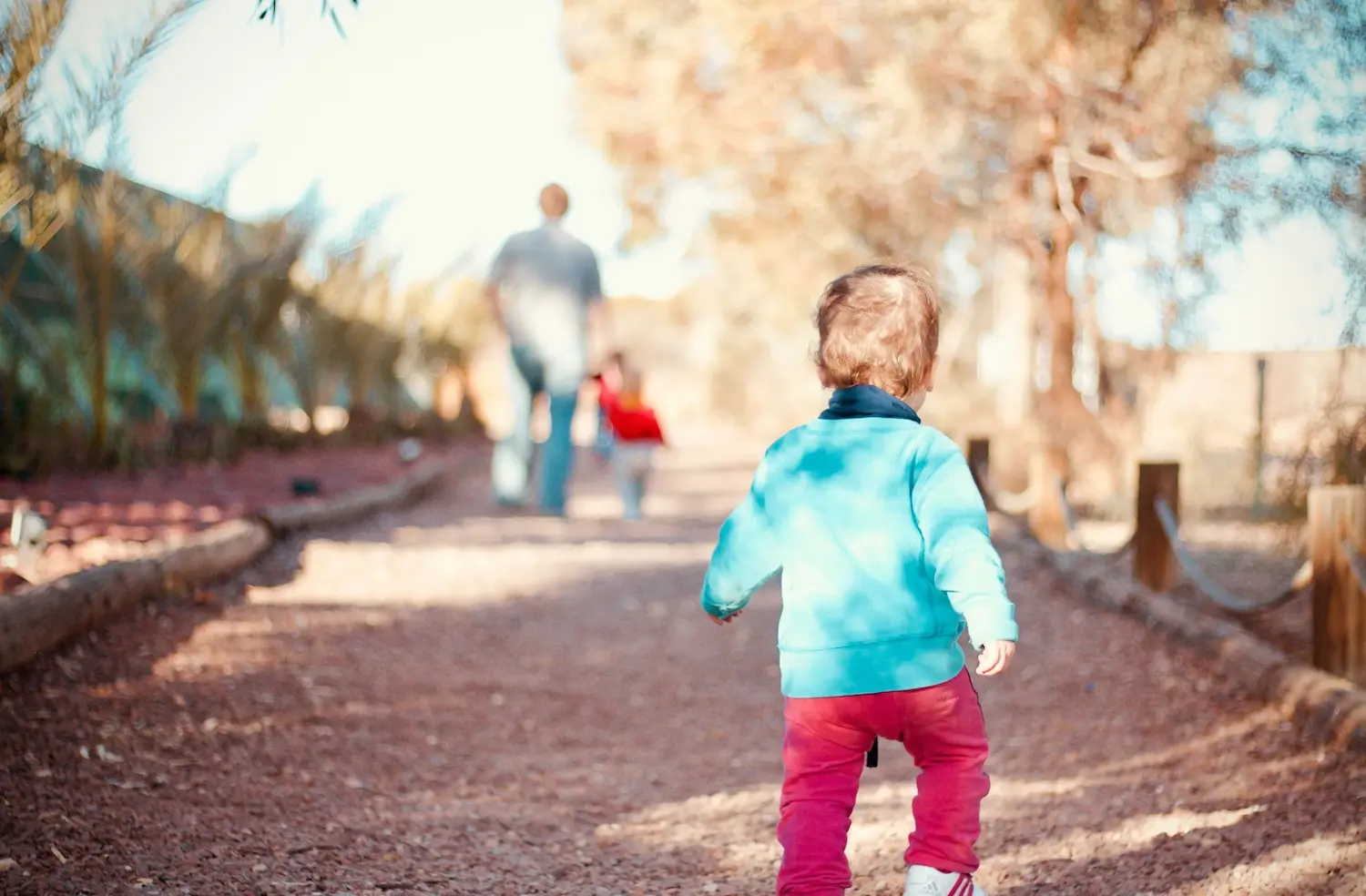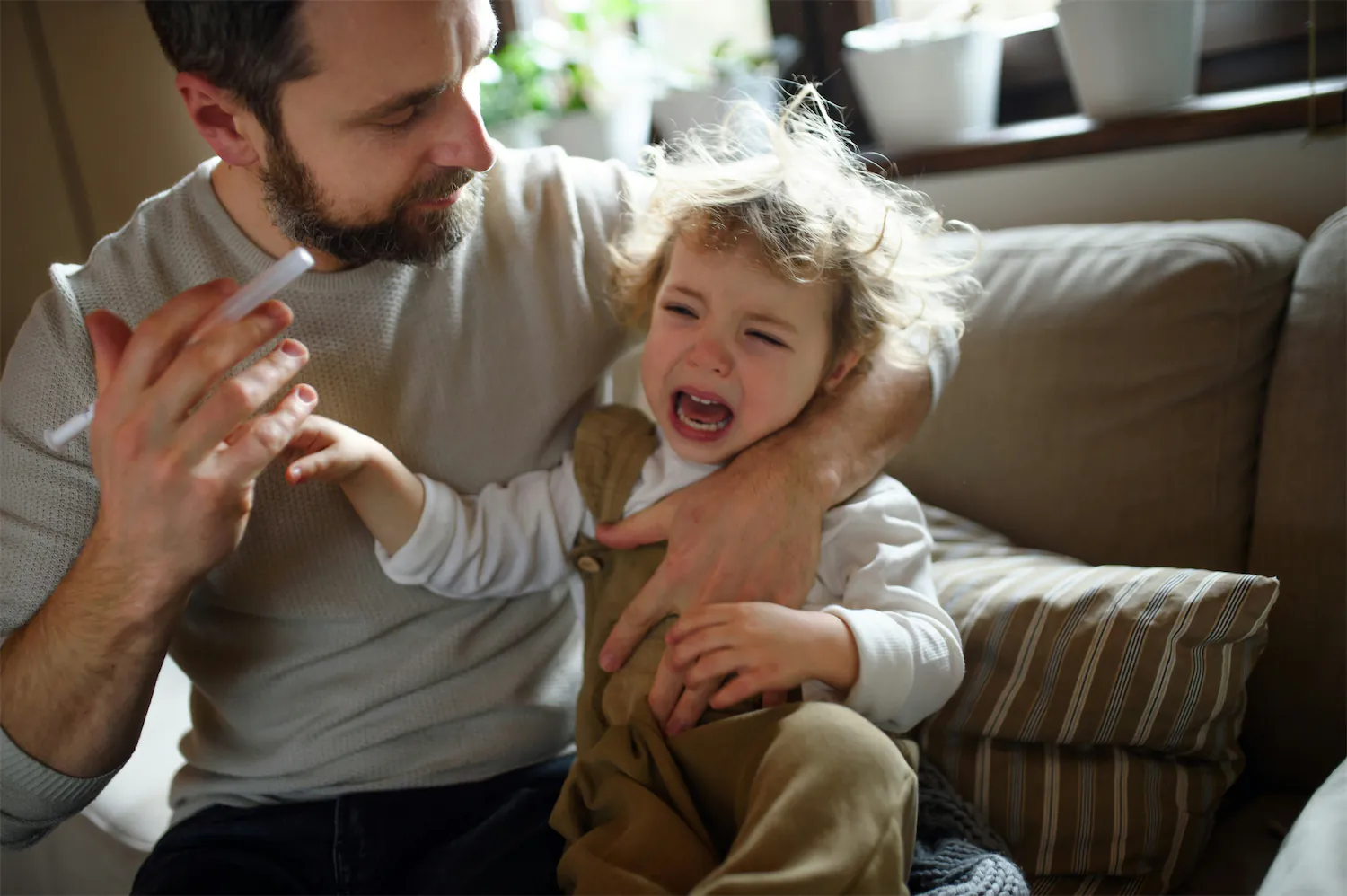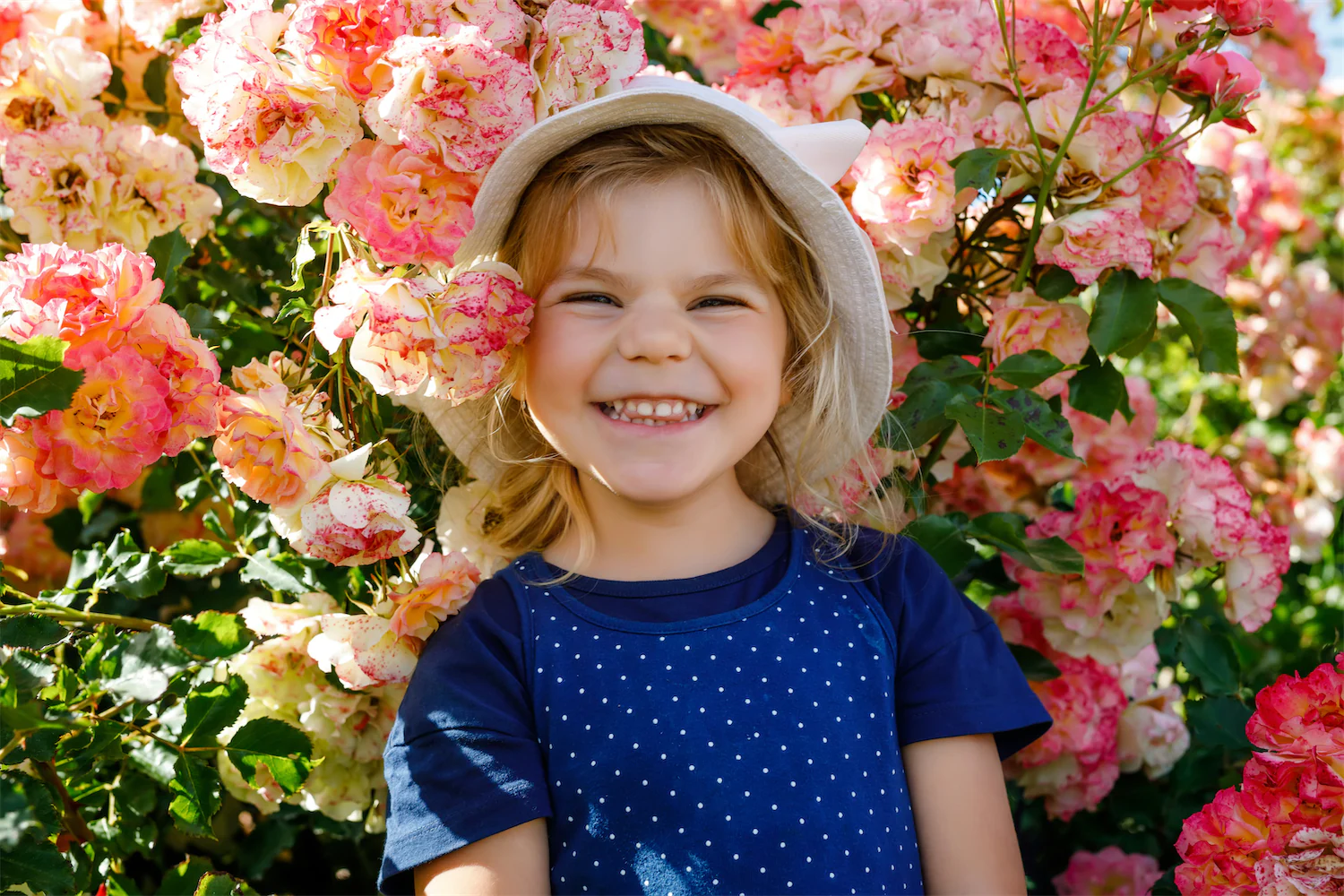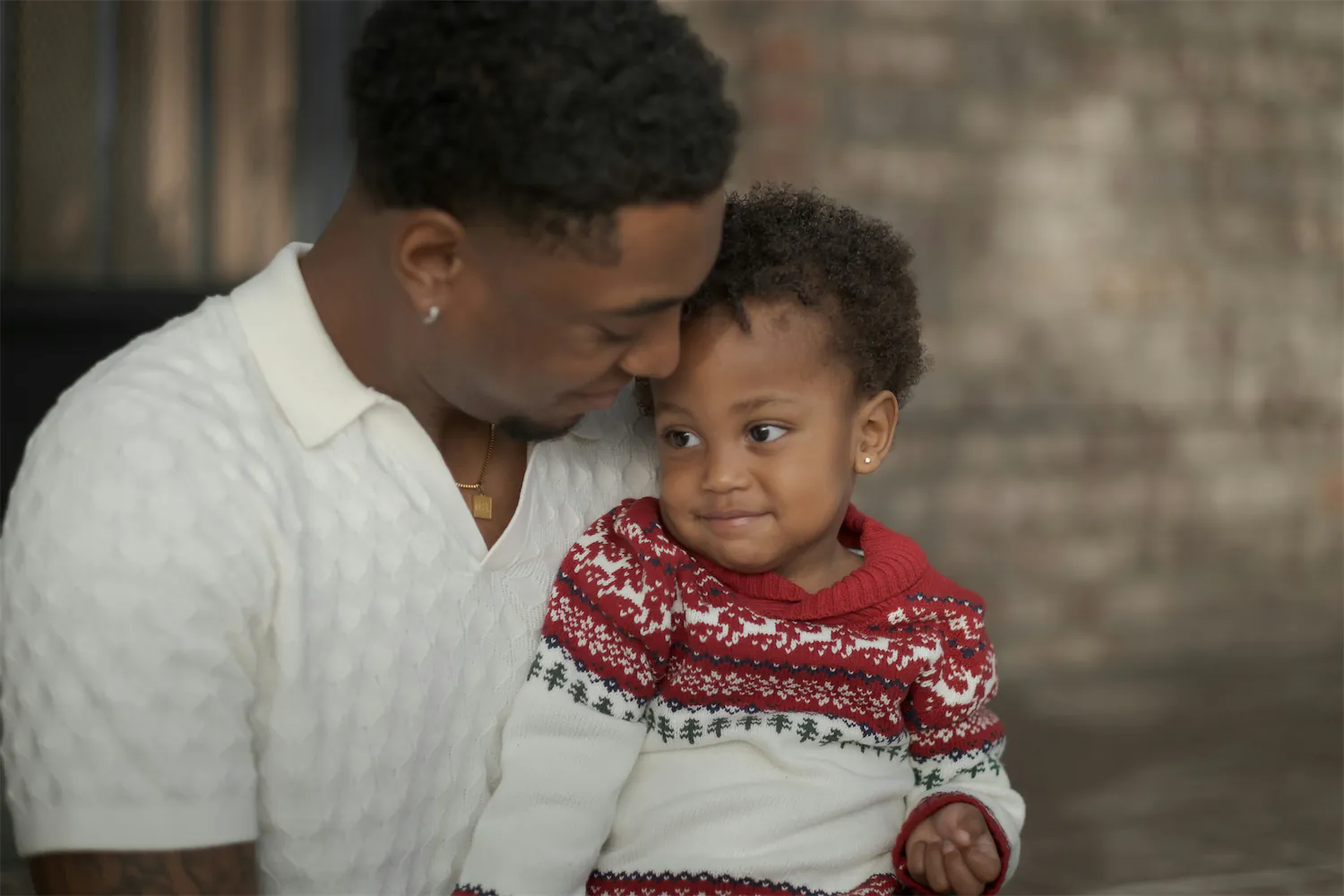9 ways to soothe newborns and infants without a pacifier
9 ways to soothe newborns and infants without a pacifier
You may be a parent who doesn’t want to — or can’t — use a pacifier to soothe your baby. That’s okay. Whether your baby never took to a pacifier after endless trial and error, or you just prefer to go pacifier-free, there are ways to help calm your little one down — and teach them to self soothe — without a pacifier.
You may be a parent who doesn’t want to — or can’t — use a pacifier to soothe your baby. That’s okay. Whether your baby never took to a pacifier after endless trial and error, or you just prefer to go pacifier-free, there are ways to help calm your little one down — and teach them to self soothe — without a pacifier.

Megan N. Freeland, PharmD
Content Writer

Dr. Marcy Borieux
Pediatrician



Understanding fussiness in newborns
Before we dive into the ins and outs of soothing a newborn — and self soothing for older infants — it may be helpful to understand why your little one may be fussy sometimes.
Is fussiness and irritability normal in newborns?
Just like older children and adults, newborns have different temperaments and personalities. This means that some babies may be calmer, while others may be fussier. Newborns also have different moods, so the same baby may have times when they are fussier and times when they are calmer.
Should I be concerned if I have an irritable or fussy newborn?
Some level of fussiness is normal in newborns since their whines and cries are how they communicate.
But this is where your expertise as a parent comes into play. Sometimes fussiness, irritability, and restlessness can be a sign that your baby isn’t feeling well or is sick. Also, babies who cry a lot — more than most — may have colic, which can also be tricky to help your little one deal with.
If your baby is fussier than they usually are, talk to your local pediatrician or a Summer Health pediatrician for help figuring out whether they may be sick.
When are newborns most fussy?
Throughout the newborn period, babies are most fussy between 6 and 8 weeks old.
In their daily routines, newborns tend to be more fussy in the evenings between 5 and 11pm, when they’re likely tired (or overtired) and worn out from the day.
How to calm a fussy newborn without using a pacifier: 9 tips
Below are a few ways you can help your baby calm down without using a pacifier.
Ensure your little one’s basic needs are met
1. Feeding regularly
Whether your baby is breastfed, formula-fed, or a mixture of both, ensuring their tummies are full is a great first step to calming a fussy baby. Babies have several hunger cues that let you know they’re ready to eat. But if those hunger cues are missed, crying is their last resort. If your baby hasn’t eaten in a while and starts to get fussy, they may be hungry.
Remember that babies who drink breast milk tend to eat or nurse more often than babies who drink formula. And cluster feeding — times when babies are hungrier than usual and may want to breastfeed more often — is also a thing. So even if you think to yourself, “But they just ate!” it’s possible your growing baby may be hungry again.
2. Clean diaper
For little people who are constantly making wet diapers and poopy diapers, most babies don’t like to stay in those dirty diapers too long. If your baby is fussy, they may be uncomfortable due to a wet or dirty diaper. Keeping your baby in a clean diaper may help reduce fussiness and can also help prevent diaper rashes.
3. Help them relieve gas
When your baby eats, they may swallow air along with their milk, causing gas to get trapped. Because newborn’s digestive systems aren’t fully developed, they may have trouble passing the gas on their own.
Gas can make babies feel uncomfortable, and can even cause pain. So helping them relieve gas — through burping, bicycling their legs, infant massage, or other gas-relieving strategies — can make your little one more comfortable and less fussy.
Offer physical comfort measures
4. Swaddling
Swaddling is especially effective for newborns because they’ve just come out of the womb, where they were constantly wrapped in a snug environment. Since babies like the feeling of being held close, swaddling is a good soothing technique and can help your baby feel calm and safe. Keep in mind, once your baby learns how to roll, it’s time to stop swaddling them.
5. Motion
Calming movements like rocking, swaying, or even riding in a car seat or stroller can also be soothing to babies. There’s also the “colic carry,” where you hold your baby stomach-down on your forearm, while supporting their head in the palm of your hand. Adding motion to the colic carry, by rocking gently or walking slowly, can be soothing.
6. Skin-to-skin
Babies love to be close to their parents — as close as close can be! So skin-to-skin contact is often a great way to reduce those tears.
Creating a calming environment
7. White noise
For babies, a calming environment might involve some white noise — a gentle, consistent sound that reminds newborns of being in the womb and can also reduce other distracting sounds.
If you don’t have a white noise machine, you can make long “shhh” noises with your mouth. If you have a smartphone or computer, you can find and play white noise tracks on music streaming apps or apps like YouTube.
8. Limit stimulation
Lights, loud sounds, bright colors, and lots of activity can be stimulating for newborns. And while exposure to these elements is important for their learning and development, it’s also possible for newborns to become overstimulated and overwhelmed by their environments. If your baby is fussy, it can be a sign of overstimulation, so changing their environment, or moving them to a less stimulating environment can be effective.
9. Sleep routines
Having a soothing nap time routine and bedtime routine can help your baby become less fussy and restless since it helps prepare their brains and bodies for sleep. Sleep routines are most effective if you start them before your little one is too tired. Overtiredness can also cause fussiness and can make it harder for newborns to fall asleep.
FAQs: All about self soothing
What does self soothing mean?
In baby land, self soothing refers to a baby’s ability to calm themselves down rather than relying on someone else, like a parent, to help them calm down.
You’ll often hear about self soothing in the context of sleep. This is when your baby can wake up but fall back asleep on their own without needing someone else to help them by rocking, feeding them, etc.
Is self soothing harmful to my baby?
Self soothing is a skill that’s useful throughout a person’s entire life, but even young babies can begin to learn it. As long as a baby is safe and has their basic needs met, teaching a baby to self soothe at the appropriate age is not harmful.
At what age can a baby self soothe?
Self soothing is a developmental skill. Before 3 months of age, most infants don’t have the developmental skills to be able to soothe themselves. They will need help calming down and settling; hence, the 9 tips above! Between 3 and 6 months old, infants will often show signs of being able to practice self soothing.
How can I encourage self soothing?
You can encourage self soothing by:
Allowing your baby to explore and practice self soothing techniques, like sucking on their fingers or hands
Gradually limiting your own soothing behaviors in order to encourage your baby to practice soothing themselves
Starting to separate feeding or nursing from sleeping, so that your baby doesn’t rely on eating to fall sleep
Putting your baby down for a nap or bedtime before they become overtired
Our Summer Health pediatricians and sleep specialists are just a text away and can help you develop a strategy for helping your child learn and practice self soothing techniques.
Understanding fussiness in newborns
Before we dive into the ins and outs of soothing a newborn — and self soothing for older infants — it may be helpful to understand why your little one may be fussy sometimes.
Is fussiness and irritability normal in newborns?
Just like older children and adults, newborns have different temperaments and personalities. This means that some babies may be calmer, while others may be fussier. Newborns also have different moods, so the same baby may have times when they are fussier and times when they are calmer.
Should I be concerned if I have an irritable or fussy newborn?
Some level of fussiness is normal in newborns since their whines and cries are how they communicate.
But this is where your expertise as a parent comes into play. Sometimes fussiness, irritability, and restlessness can be a sign that your baby isn’t feeling well or is sick. Also, babies who cry a lot — more than most — may have colic, which can also be tricky to help your little one deal with.
If your baby is fussier than they usually are, talk to your local pediatrician or a Summer Health pediatrician for help figuring out whether they may be sick.
When are newborns most fussy?
Throughout the newborn period, babies are most fussy between 6 and 8 weeks old.
In their daily routines, newborns tend to be more fussy in the evenings between 5 and 11pm, when they’re likely tired (or overtired) and worn out from the day.
How to calm a fussy newborn without using a pacifier: 9 tips
Below are a few ways you can help your baby calm down without using a pacifier.
Ensure your little one’s basic needs are met
1. Feeding regularly
Whether your baby is breastfed, formula-fed, or a mixture of both, ensuring their tummies are full is a great first step to calming a fussy baby. Babies have several hunger cues that let you know they’re ready to eat. But if those hunger cues are missed, crying is their last resort. If your baby hasn’t eaten in a while and starts to get fussy, they may be hungry.
Remember that babies who drink breast milk tend to eat or nurse more often than babies who drink formula. And cluster feeding — times when babies are hungrier than usual and may want to breastfeed more often — is also a thing. So even if you think to yourself, “But they just ate!” it’s possible your growing baby may be hungry again.
2. Clean diaper
For little people who are constantly making wet diapers and poopy diapers, most babies don’t like to stay in those dirty diapers too long. If your baby is fussy, they may be uncomfortable due to a wet or dirty diaper. Keeping your baby in a clean diaper may help reduce fussiness and can also help prevent diaper rashes.
3. Help them relieve gas
When your baby eats, they may swallow air along with their milk, causing gas to get trapped. Because newborn’s digestive systems aren’t fully developed, they may have trouble passing the gas on their own.
Gas can make babies feel uncomfortable, and can even cause pain. So helping them relieve gas — through burping, bicycling their legs, infant massage, or other gas-relieving strategies — can make your little one more comfortable and less fussy.
Offer physical comfort measures
4. Swaddling
Swaddling is especially effective for newborns because they’ve just come out of the womb, where they were constantly wrapped in a snug environment. Since babies like the feeling of being held close, swaddling is a good soothing technique and can help your baby feel calm and safe. Keep in mind, once your baby learns how to roll, it’s time to stop swaddling them.
5. Motion
Calming movements like rocking, swaying, or even riding in a car seat or stroller can also be soothing to babies. There’s also the “colic carry,” where you hold your baby stomach-down on your forearm, while supporting their head in the palm of your hand. Adding motion to the colic carry, by rocking gently or walking slowly, can be soothing.
6. Skin-to-skin
Babies love to be close to their parents — as close as close can be! So skin-to-skin contact is often a great way to reduce those tears.
Creating a calming environment
7. White noise
For babies, a calming environment might involve some white noise — a gentle, consistent sound that reminds newborns of being in the womb and can also reduce other distracting sounds.
If you don’t have a white noise machine, you can make long “shhh” noises with your mouth. If you have a smartphone or computer, you can find and play white noise tracks on music streaming apps or apps like YouTube.
8. Limit stimulation
Lights, loud sounds, bright colors, and lots of activity can be stimulating for newborns. And while exposure to these elements is important for their learning and development, it’s also possible for newborns to become overstimulated and overwhelmed by their environments. If your baby is fussy, it can be a sign of overstimulation, so changing their environment, or moving them to a less stimulating environment can be effective.
9. Sleep routines
Having a soothing nap time routine and bedtime routine can help your baby become less fussy and restless since it helps prepare their brains and bodies for sleep. Sleep routines are most effective if you start them before your little one is too tired. Overtiredness can also cause fussiness and can make it harder for newborns to fall asleep.
FAQs: All about self soothing
What does self soothing mean?
In baby land, self soothing refers to a baby’s ability to calm themselves down rather than relying on someone else, like a parent, to help them calm down.
You’ll often hear about self soothing in the context of sleep. This is when your baby can wake up but fall back asleep on their own without needing someone else to help them by rocking, feeding them, etc.
Is self soothing harmful to my baby?
Self soothing is a skill that’s useful throughout a person’s entire life, but even young babies can begin to learn it. As long as a baby is safe and has their basic needs met, teaching a baby to self soothe at the appropriate age is not harmful.
At what age can a baby self soothe?
Self soothing is a developmental skill. Before 3 months of age, most infants don’t have the developmental skills to be able to soothe themselves. They will need help calming down and settling; hence, the 9 tips above! Between 3 and 6 months old, infants will often show signs of being able to practice self soothing.
How can I encourage self soothing?
You can encourage self soothing by:
Allowing your baby to explore and practice self soothing techniques, like sucking on their fingers or hands
Gradually limiting your own soothing behaviors in order to encourage your baby to practice soothing themselves
Starting to separate feeding or nursing from sleeping, so that your baby doesn’t rely on eating to fall sleep
Putting your baby down for a nap or bedtime before they become overtired
Our Summer Health pediatricians and sleep specialists are just a text away and can help you develop a strategy for helping your child learn and practice self soothing techniques.
Summer Health offers fast and reliable pediatric urgent care through online doctors, all via text. Whether you’re worried about your baby's fever, rashes, or other children's health concerns, we provide expert advice and support anytime, right from your phone.

Never miss a post!
Sign up for our newsletter to receive articles and guides directly to your inbox!
